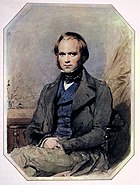
A letter published in
The Catholic Herald points out that in my analysis of the challenge of evangelization in that paper (
October 2), I ignored the "elephant in the room", namely Evolution. It says that my piece was "fine as far as it goes, but, like so many Catholic commentators on the decline of belief in this country, he is either unable or unwilling to take the necessary final step and identify the elephant in the room: namely, the Darwinian world-view that underpins our secular culture." It continues:
As Mr Caldecott says, we have lost a sense of who we are and how we fit into the cosmos. There is no mystery about why this has occurred: it follows naturally from the Darwinian view that we are merely the product of blind forces, rather than the deliberate creation of a loving God. The key is not, as he suggests, to highlight the complementary relationship of the arts and sciences, their common search for beauty, and the attraction of elegant solutions that please the heart: much of Darwinism’s superficial attraction lies in the fact that it appears to satisfy all these criteria, while clearly leaving no room for religious belief. Rather, we should be highlighting the latest research in such diverse fields as information theory, biochemistry and cosmology, which provide compelling evidence for traditional Catholic teaching on mankind’s unique status within God’s creation. Until we (and the Church generally) grasp this nettle, it will not matter one jot how many “humane and intelligent alternatives to the increasingly oppressive secularism of our schools” are devised: our children will continue to regard religious belief as fundamentally irrational.
I don't entirely agree. In an article called "
Theories of Evolution" I suggest that Darwin does leave room for religious belief. We do not have to take Richard Dawkins at face value, nor ignore the presence of respected theistic evolutionists such as
Simon Conway-Morris (Cambridge). Darwin himself seems to have lost his faith for other reasons than the theory of natural selection. Atheistic evolutionism is a symptom and result of the split in our culture that I was writing about in that article and in my book - the three-way split between science, art, and faith. Unfortunately the debate on evolution too often gets bogged down in the discussion of atheism vs creationism or intelligent design. It needs to be broadened out, with reference also to psychology, neurophysiology, the nature of the soul and the human person. Religious believers have nothing to fear from facts discovered by modern science, although we must be wary of some of the interpretations that may be placed upon them.
Materialist theories of evolution in fact make sense only to people who lack a sense of spiritual forms or essences. If that whole dimension is closed to our minds, if there is no conception of what might be meant by “vertical causation” (formal and final causes working together with material and efficient ones), then naturally there is nowhere else for species to come from than below, through a combination of chance and necessity. The successive temporal unfolding of species does not prove the truth of the theories that are adduced to explain it. The inner form that makes a species
what it is exists eternally, however it comes to be manifested in space and time.













